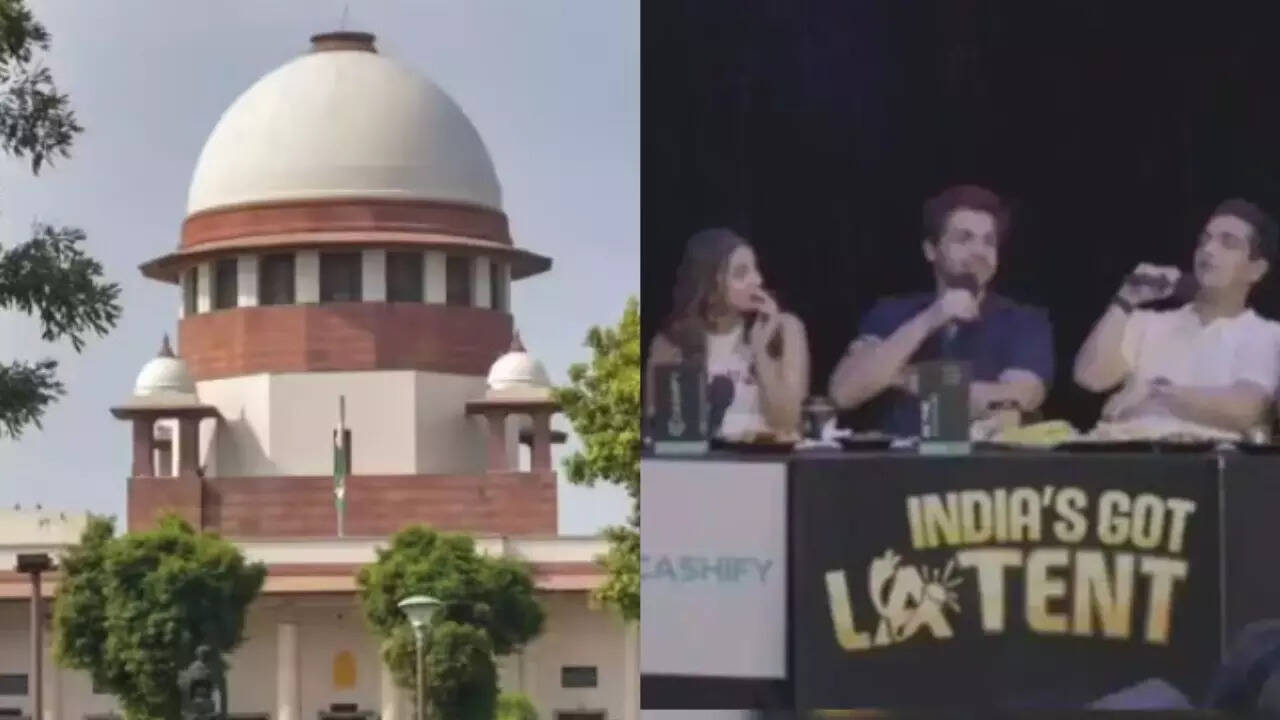Regulating Social Media in India

- 03 Sep 2025
In News:
The Supreme Court of India, in a recent case concerning derogatory remarks by comedians, observed that social media influencers commercialise free speech, often blurring the line between legitimate expression and harmful speech. It stressed that while humour and satire are constitutionally protected, derogatory jokes against vulnerable groups perpetuate stigma and undermine inclusivity. The Court urged the Union Government to frame effective guidelines with enforceable consequences to ensure accountability in the digital space. This development underscores the growing debate on the regulation of social media in India.
Judicial Observations and Recommendations
- Commercialisation& Accountability: Free speech is increasingly monetised by influencers, creating overlaps with prohibited speech. Such expression cannot become a shield for targeting disadvantaged groups.
- Humour vs. Dignity: The Court emphasised that humour should not compromise dignity, particularly of persons with disabilities, women, children, minorities, and senior citizens.
- Guidelines with Consequences: Directed the Union Government, in consultation with industry bodies, to frame proportionate and enforceable rules.
- Digital Responsibility: Called for sensitisation and ethical conduct on social media, along with unconditional apologies for derogatory remarks.
Existing Legal and Regulatory Framework
- Information Technology Act, 2000 – Principal legislation for digital communication.
- Section 79(1): Provides safe harbour to intermediaries if they act neutrally.
- Section 69A: Allows government to block content for sovereignty, security, and public order.
- IT (Intermediary Guidelines and Digital Media Ethics Code) Rules, 2021 – Mandates due diligence, grievance redressal, and removal of unlawful content.
- 2023 Amendment – Required intermediaries to remove false/misleading content about the government; however, its enforcement was stayed by SC.
- Key Judicial Precedents:
- Shreya Singhal v. Union of India (2015): Struck down Section 66A of IT Act for vagueness, reaffirming free speech under Article 19(1)(a).
- K.S. Puttaswamy v. Union of India (2017): Recognised privacy as a fundamental right under Article 21, shaping later data protection measures.
Need for Regulation
- Protecting Vulnerable Groups: Prevents cyberbullying, trolling, and derogatory content.
- Curbing Misinformation & Hate Speech: Essential to check fake news, deepfakes, and extremist propaganda that threaten social harmony and security.
- Mental Health Safeguards: Addresses anxiety, depression, and addictive behaviours linked to excessive use.
- Influencer Accountability: Prevents consumer harm through undisclosed endorsements and fraudulent promotions.
- Data Privacy & Security: Ensures user rights under Article 21 are not compromised by exploitative data practices.
- Balancing Free Speech & Responsibility: Draws boundaries within Article 19(2) restrictions (public order, morality, security).
Challenges in Regulation
- High Volume & Anonymity: Makes monitoring difficult.
- Transparency Gaps: Platforms’ opaque moderation policies lack accountability.
- Defining Harmful Content: Subjectivity and cultural sensitivities complicate consensus.
- Risk of Overreach: Regulations can be misused as censorship.
- Cross-Border Jurisdiction: Large share of harmful content originates outside India.
- Political Neutrality Concerns: Allegations of bias in content moderation decisions.
Way Forward
- Comprehensive Legal Framework: Update IT Act with the proposed Digital India Act, ensuring balance of rights and responsibilities.
- Algorithmic Transparency: Mandate audits, reporting, and oversight of AI-driven content moderation.
- Institutional Capacity: Invest in cyber forensic labs and AI-enabled monitoring.
- Digital Literacy Campaigns: Encourage ethical online behaviour and awareness of misinformation.
- Global Cooperation: Strengthen cross-border regulatory partnerships and multi-stakeholder governance.
Conclusion
Regulating social media in India requires a balanced approach—one that safeguards freedom of expression under Article 19(1)(a) while addressing harms that erode dignity, social harmony, and democratic discourse. A mix of robust laws, technological innovation, ethical guidelines, and digital literacy can build a safe, inclusive, and accountable digital ecosystem aligned with India’s constitutional vision of justice, liberty, equality, and fraternity.
